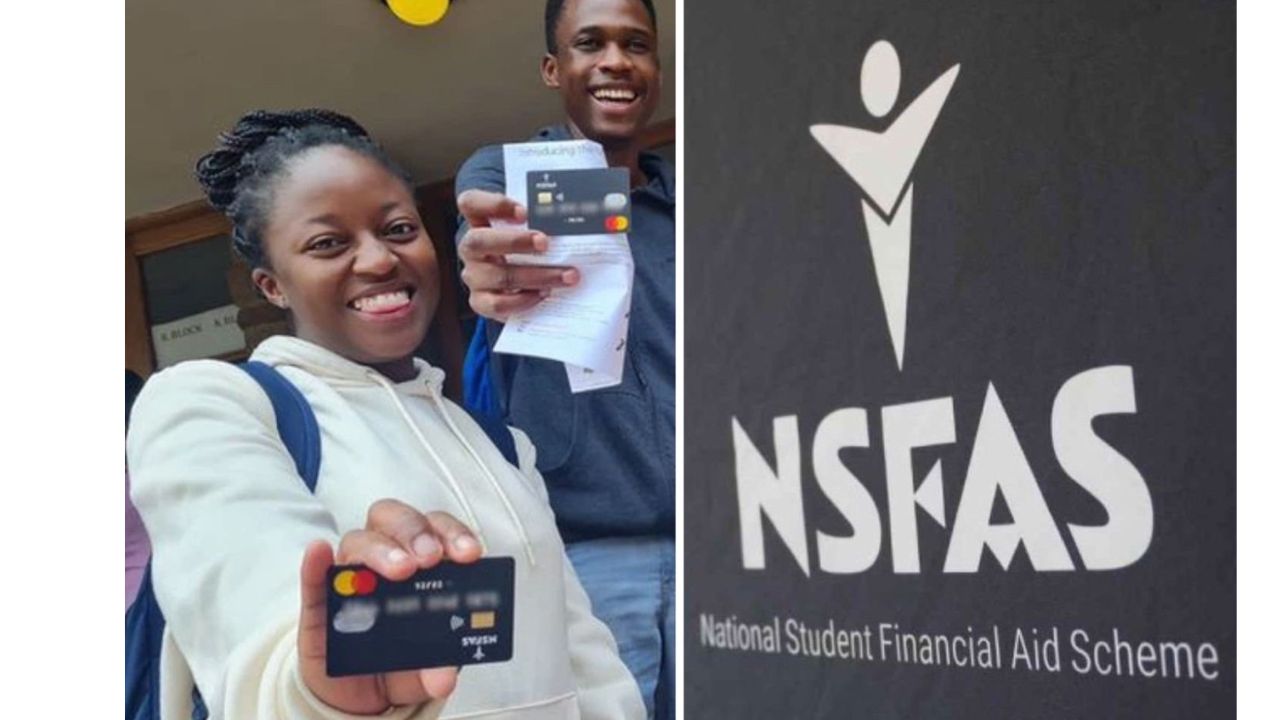Students from working-class and disadvantaged households could acquire money under the National Student Financial Aid Scheme (NSFAS) to complete their first postsecondary education.
To worthy students participating in recognized courses at universities and TVET institutes, NSFAS offers comprehensive bursaries and student loans. The support covers living expenses, lodging, educational materials, and several allowances for tuition and registration fees. Students must fulfill several additional academic requirements and financial eligibility requirements to be eligible for an NSFAS bursary.
What is an NSFAS Bursary?
The South African government offers financial assistance to students who require assistance covering the cost of their education through NSFAS bursaries. It pays public universities and (TVET) school fees, including tuition, books, housing, and other charges. The aim is to ensure that students from low-income households can attend college or university without financial concerns.

Who Can Apply for an NSFAS Bursary?
To be eligible for an NSFAS bursary, you must fulfill the following criteria:
- Citizen of South Africa: You have to be a citizen of South Africa. Only students who reside and study in South Africa are eligible for this grant.
- Studying at a Public Institution: You must be enrolled in a public university or TVET college or be prepared to enroll. The bursary does not cover private institutions.
- Getting a SASSA Grant: You are automatically eligible for NSFAS if you receive Social Assistance (SASSA) grants, such as grants for children, older people, or people with disabilities. These grants demonstrate your low-income origins.
- Household Income: If you are not granted a SASSA grant, your yearly family income must be R350,000 or less. This cap on income ensures that the bursary is awarded to the most deserving applicants.
Important Things to Consider
- Excellent Grades: Although the NSFAS primarily considers financial considerations, maintaining an outstanding grade point average will help you retain financing for your study.
- Particular Situations: When you apply, NSFAS may consider any unique circumstances you may have, such as a large number of dependents living in your home or unforeseen financial troubles. Make sure your application has this information.
Requirements to Maintain NSFAS Funding:
By 2024, colleges must have a 50% credit pass rate for continuing students and First Time Entering Students (FTEN). However, by the end of the 2024 academic year, they must achieve a course credit pass rate of 60% to be eligible for financing in the 2025 academic year. Should this requirement not be fulfilled, NSFAS funding will be discontinued for 2025.
To be eligible for an NSFAS scholarship, TVET college students must pass at least five topics from the previous NC(V) level to advance to the following NC(V) level. Similarly, to advance to the following Report 191 level and be eligible for a bursary, students participating in the Report 191 program/NATED programs must pass at least three subjects in the preceding N-Level.
TVET colleges will set the academic progression requirements for students pursuing occupational programs, and they will report the results to NSFAS.
NSFAS-funded students will need to reapply for financing in 2024 if they deregister or withdraw during a term and want to continue their education in later terms. Furthermore, money will not be awarded to students who surpass the NSFAS N+ Rule for universities or TVET colleges.
The length of a student’s enrollment in higher education will decide the university N+ Rule for 2024, while TVET colleges’ NSFAS-funded academic periods will determine the TVET college N+ Rule. Any level from the admission to the departure academic term may be repeated during the extra NSFAS-funded academic term.
Notably, vocational programs are exempt from the N+ Rule since they are designed to comply with work contracts, which do not allow for the N+1 time of study.
NSFAS 2024 Allowances:
The yearly ceiling for university students living in approved off-campus housing that the university supervises and self-catering is R41,000 outside significant cities and R50,000 within them. Per beneficiary, the maximum amount for university-managed catered housing is R66,500 in substantial towns and R57,500 elsewhere.
The maximum for TVET college students residing in managed self-catered and accredited off-campus housing is R50,000 in metro areas and R41,000 in other regions. The cap for college-owned catered apartments is R60,000 in metro areas and R51,000 in different areas per beneficiary.
The living allowance for 2024 will be paid monthly for over ten months, with R10,000 going to TVET college students and R16,500 to university students.
Living expenses, which include meals, are available to students with impairments for R20,000 each academic year. Additionally, they are eligible for an R6,000 learning materials subsidy for university students only each academic year.
The NSFAS offers a one-time assistive device grant of no more than R50,000. Additionally, up to R2,000 in repairs and upkeep of assistive equipment are covered for these students each academic year.
Why Are NSFAS Bursaries Important?
More than merely helping with tuition, NSFAS bursaries enable many students to pursue higher education when they otherwise would not have been able to. With these bursaries, students may concentrate on their academics without having to worry about money, improving their chances of success in the future.
For students who want financial assistance to pursue higher education in South Africa, NSFAS bursaries are an essential resource. Your academic aspirations may be furthered by applying for an NSFAS bursary if you fulfill the conditions, which can be met by reaching the income restriction or earning a SASSA award. Thanks to this help, you won’t have to worry about money while attending a public university or TVET institution. If you qualify, don’t pass up the chance to apply for this significant financial help.
